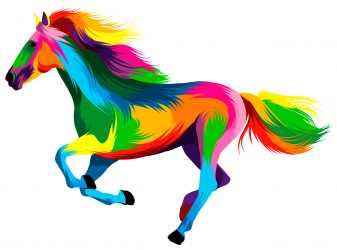Today could be an important day for U.S. racing. Joe Drape and company published the second part of the New York Times series on fatalities in racing, coinciding with a Congressional hearing on performance-enhancing drugs in horses. This article looks quite a bit more well-researched, and consequently quite a bit more damning, than the first article. It really paints a horrible picture of the claiming game in America. If you don’t read any other part of the article, have a look at the graphic of what was injected into a single horse in the week before a race that turned out to be the horse’s last. He broke down and was euthanized on the track. There must be at least $800 worth of pharmaceuticals here, and some counteract the effects of others. Hyaluronic acid, for example, is a regenerative product that mimics the fluid in the joints. Methylprednisolone is a corticosteroid, which offers dramatic relief from joint pain but tears down the cartilage in the process. Adequan helps stop that deterioration. Bute and flunixin are powerful anti-inflammatory drugs that can make a lame horse appear sound. Here is the most horrifying aspect of all of this: Every one of those drugs is considered a legal, “therapeutic” medicine in race horses in the United States, so therefore that horse wouldn’t even have failed a post-race dope test, if he were still alive to take one.
And still, a vocal majority of trainers and veterinarians in the States argue that it would be inhumane to do otherwise. We barbarians here in Europe and most of the rest of the world are abusing our horses by forcing them to run with absolutely no pharmaceuticals in their system on race day. Really. How could we? How could we possibly wait until our horses are sound without the aid of drugs to race them? We should be ashamed of ourselves.
Another common argument across the pond is that eliminating drugs would cut the “little guy” out of the sport. Horses that aren’t good enough to run stakes races, but must earn their living at the lower levels of racing couldn’t possibly do it without pharmaceutical help, they say. Here’s what I have to say: Bullshit. I’ve got a yard full of “little guys,” who are having plenty of fun racing horses at lower levels on hay, oats and water. Yes, they see an occasional vet bill. They will never, ever spend a fraction of what the “little guy” in America has to spend on vet bills alone, never mind the training fees.
I am very lucky to have owners who are in the sport for the right reason: to enjoy themselves in the company of the noble thoroughbred. I am doing my utmost to keep their horses in the money, and we all dream of hitting upon the Big Horse. But the reality is that we’re thrilled when a horse pays its way. Horses cost money. Keeping horses costs even more money. There is a reason it is called the Sport of Kings. If you are looking for a return on your investment, buy a bond and leave the poor horses alone.


This article was a lot better researched and part of it was an excellent expose of “therapeutic” medicine as practiced on racehorses. I loved your comments on the short term thinking of trainers, owners and vets. The Chemical Horse is an expensive horse, and worse, a fragile horse. I’d add that the idea that “therapeutic” drugs are “humane” gets its credibility from the drug ads that flood the airwaves here. It’s not just horses …
But if you told me the article was commissioned by the Casino Industry to divert money from racing, I could believe it. Only the last section about Earle Mack and Star Plus would have made me wonder. The rest is all about making people disgusted with racing as a whole and how giving racing money just makes it viler.
In a better world part of the Casino Windfall would be used to promote racing as a sport, not just to pump up purses. A donation to a thoroughbred retirement fund for each race would help. Making the veterinary records public would help a lot (NYRA plans to do this I think). Most tracks fund jockey insurance. Tracks should consider programs that introduce people to horses. There’s a British saying that something about the outside of a horse is good for the inside of a man. Taking care of horses has been used to rehab prisoners. I became a racing fan because my father took me to the track as a little kid. I remember insisting that he bet on a horse because “he looks just like the Black Stallion”; after he lost I was introduced to the idea of racing form. A program for kids and rehab horses? Adults love sports if they had contact with some aspect of it.